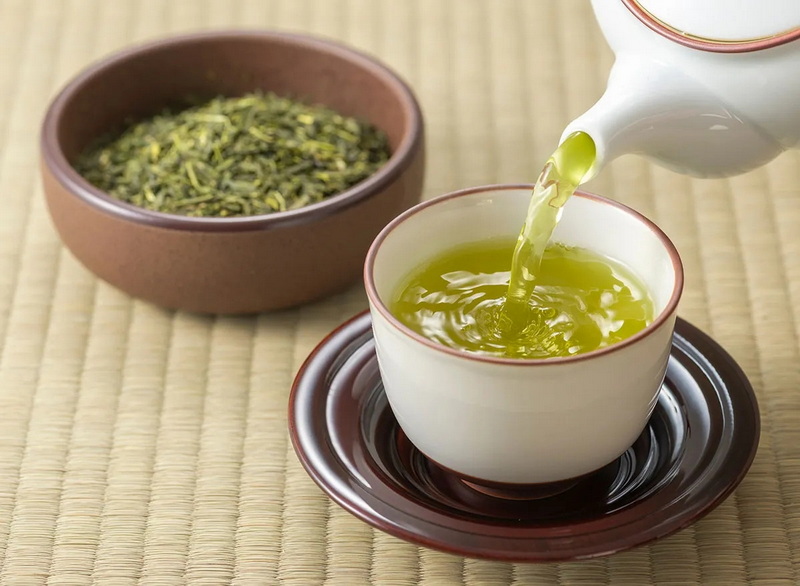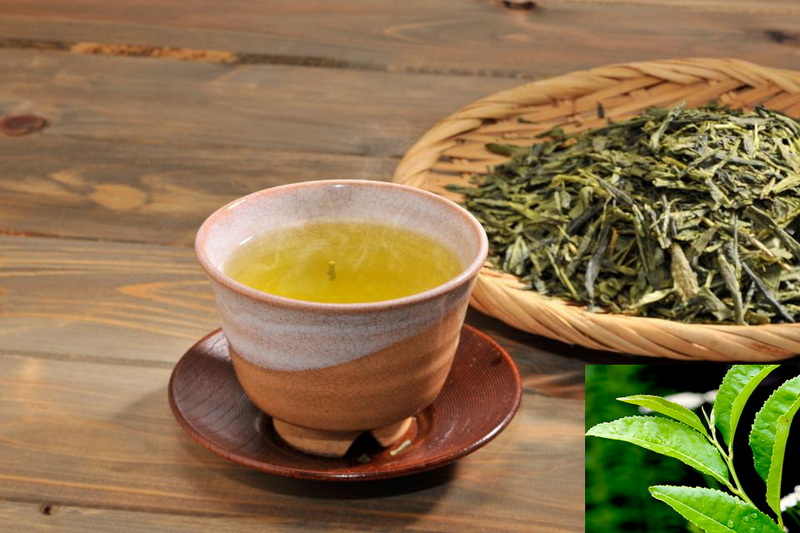Content Menu
● What is Green Tea Extract?
>> Benefits of Green Tea Extract
● How to Consume Green Tea Extract
>> 1. Choosing the Right Form
>> 2. Recommended Dosage
>> 3. Timing Your Consumption
>> 4. Combining with Other Ingredients
>> 5. Monitoring Effects
● Practical Tips for Incorporation
>> 1. Smoothies
>> 2. Baking
>> 3. Tea Blends
>> 4. Energy Bars
>> 5. Infused Water
● Potential Side Effects
● Conclusion
● FAQ
>> 1. What is the best time to take green tea extract?
>> 2. Can I take green tea extract every day?
>> 3. Are there any interactions with medications?
>> 4. Is there caffeine in green tea extract?
>> 5. Can I use green tea extract for skincare?
● Citations:
Green tea extract has gained popularity due to its numerous health benefits, including weight loss, improved heart health, and enhanced cognitive function. This article provides a comprehensive guide on how to effectively consume green tea extract, its benefits, potential side effects, and practical tips for incorporation into your daily routine.

What is Green Tea Extract?
Green tea extract is a concentrated form of green tea that retains the beneficial compounds found in the leaves of the Camellia sinensis plant. It is rich in polyphenols, particularly catechins like epigallocatechin gallate (EGCG), which are known for their antioxidant properties. Unlike regular green tea, which is steeped in water, green tea extract is available in various forms such as capsules, powders, and liquid extracts.
Benefits of Green Tea Extract
1. Weight Loss: Green tea extract has been shown to boost metabolism and promote fat burning. Studies indicate that it can increase energy expenditure and fat oxidation, making it a popular choice for those looking to manage their weight. A study published in the American Journal of Clinical Nutrition found that participants who consumed green tea extract experienced a significant reduction in body fat compared to those who did not.
2. Heart Health: The antioxidants in green tea extract may help lower blood pressure and cholesterol levels, thereby reducing the risk of heart disease. Research published in the Journal of Nutrition demonstrated that regular consumption of green tea could lead to lower LDL cholesterol levels and improved overall heart health.
3. Cognitive Function: Research suggests that green tea extract may enhance brain function and protect against neurodegenerative diseases like Alzheimer's and Parkinson's. A study published in Psychopharmacology found that participants who consumed green tea showed improved cognitive performance and memory retention.
4. Cancer Prevention: Some studies have indicated that the polyphenols in green tea extract can inhibit cancer cell growth and reduce the risk of certain types of cancer. For example, research published in Cancer Epidemiology, Biomarkers & Prevention highlighted a correlation between green tea consumption and a reduced risk of breast cancer.
5. Skin Health: The anti-inflammatory properties of green tea extract can help improve skin conditions such as acne and rosacea. A clinical trial published in Dermatologic Surgery found that topical application of green tea extract significantly reduced acne lesions.
How to Consume Green Tea Extract
1. Choosing the Right Form
Green tea extract comes in several forms:
- Capsules: Easy to take and dose. They are often preferred for their convenience.
- Powder: Can be added to smoothies or mixed with water or other beverages. This form allows for versatile use in recipes.
- Liquid Extracts: Can be taken directly or mixed with beverages. Liquid extracts may provide faster absorption.
2. Recommended Dosage
The typical dosage of green tea extract ranges from 250 mg to 500 mg per day, depending on individual health goals and tolerance. It is advisable to consult with a healthcare professional before starting any supplement regimen, especially if you have underlying health conditions or are taking medications.
3. Timing Your Consumption
- With Meals: Taking green tea extract with meals may enhance absorption and reduce stomach upset due to its polyphenol content.
- Before Exercise: Consuming it before workouts may help increase fat oxidation during exercise, making it an excellent pre-workout supplement.
4. Combining with Other Ingredients
To maximize benefits, consider combining green tea extract with other healthful ingredients:
- Lemon Juice: Enhances absorption of catechins due to its vitamin C content.
- Honey: Adds natural sweetness and additional antioxidants.
- Ginger: Provides anti-inflammatory benefits and enhances flavor.
5. Monitoring Effects
Keep track of how your body responds to green tea extract. Note any changes in energy levels, weight management, or overall health. Adjust dosage or form as needed based on your experience.

Practical Tips for Incorporation
1. Smoothies
Incorporating green tea extract powder into your morning smoothie can be an easy way to start your day with an energy boost. Combine spinach, banana, almond milk, and a teaspoon of green tea powder for a nutritious breakfast option.
2. Baking
You can add green tea powder to baked goods like muffins or pancakes for an antioxidant-rich treat. Simply substitute a portion of the flour with green tea powder for added flavor and health benefits.
3. Tea Blends
If you prefer a more traditional approach, consider blending green tea extract with other herbal teas for a refreshing beverage that retains the benefits of both ingredients.
4. Energy Bars
Make homemade energy bars using oats, nuts, honey, and a scoop of green tea powder for a healthy snack option that provides sustained energy throughout the day.
5. Infused Water
For a refreshing drink, infuse water with lemon slices and mint leaves along with a few drops of liquid green tea extract for a hydrating beverage.
Potential Side Effects
While generally safe for most people, excessive consumption of green tea extract can lead to side effects such as:
- Nausea
- Insomnia
- Headaches
- Liver toxicity (in rare cases)
It is crucial to adhere to recommended dosages and consult a healthcare professional if you experience any adverse effects.
Conclusion
Incorporating green tea extract into your daily routine can offer numerous health benefits ranging from weight loss support to improved heart health. By choosing the right form, timing your consumption effectively, and monitoring your body's response, you can maximize the positive effects of this powerful supplement.

FAQ
1. What is the best time to take green tea extract?
Taking green tea extract with meals or before exercise can enhance its absorption and effectiveness.
2. Can I take green tea extract every day?
Yes, most people can safely consume green tea extract daily within recommended dosages (250 mg to 500 mg).
3. Are there any interactions with medications?
Green tea extract may interact with certain medications, especially blood thinners. Consult your healthcare provider before use.
4. Is there caffeine in green tea extract?
Yes, green tea extract contains caffeine; however, the amount varies by product. If sensitive to caffeine, consider caffeine-free options or lower dosages.
5. Can I use green tea extract for skincare?
Yes! Topical applications of green tea extract can benefit skin health due to its anti-inflammatory and antioxidant properties.
Citations:
[1] https://www.healthline.com/nutrition/10-benefits-of-green-tea-extract
[2] https://drhoffman.com/article/egcg-potent-extract-of-green-tea-2/
[3] https://pmc.ncbi.nlm.nih.gov/articles/PMC6412948/
[4] https://www.medicalnewstoday.com/articles/269538
[5] https://health.clevelandclinic.org/green-tea-extract-a-better-way-to-boost-energy-or-not
[6] https://www.webmd.com/vitamins/ai/ingredientmono-960/green-tea
[7] https://www.urmc.rochester.edu/encyclopedia/content?contenttypeid=19&contentid=greenteaextract
[8] https://my.clevelandclinic.org/health/drugs/20553-green-tea-oral-dosage-forms






























